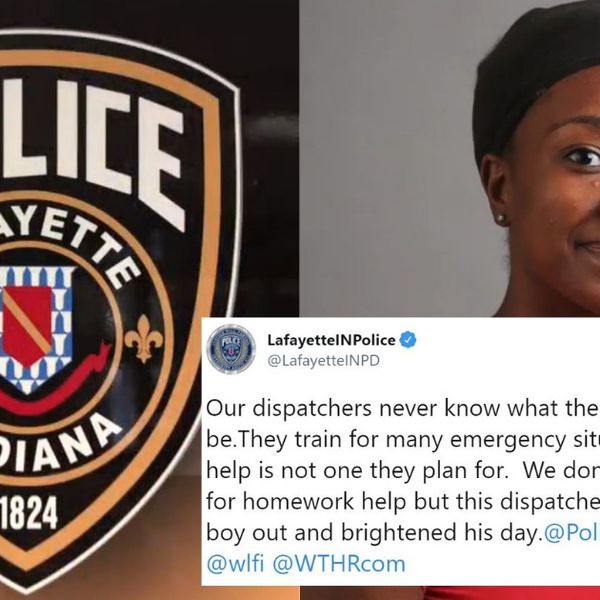September, 2002, LOS ANGELES - Movies are historic documents. They chronicle the times in which they were filmed. Oscar-winning movies in particular, beyond their acknowledged cinema artistry and box office popularity, can illuminate the temper of the country at a point in time. They capture the styles, the social values, and a sense of the political climate of the year in which they won the Academy Award.
This year is the 75th anniversary of the Oscars. The Academy of Motion Picture Arts and Sciences has been celebrating this Diamond Anniversary by screening all of the Academy Award winning Best Pictures in sequence most Monday nights at its Samuel Goldwyn Theater in Beverly Hills. This past month, the Oscar winners from the 1940s have been screened. These award-winning films gave me a good sense of the spirit of this country during those turbulent times.
The 1940 winner was director Alfred Hitchcock's "Rebecca," starring Laurence Olivier, Joan Fontaine, and Judith Anderson. The country was just emerging from the Great Depression and hungering for escape. The people wanted a break from the lingering gloom. Their romantic fantasy was the notion of happiness prevailing over adversity, come what may. Joan Fontaine played a beautiful but poor young housekeeper in a great manorial estate owned by Laurence Olivier, whose wife had recently died. She falls in love with the dashing young owner in spite of the relentless intrusions of a stern and mysterious head housekeeper played by Judith Anderson.
The film would be seen today as a piece of high-class soap opera. But it well captured the escapist appetite of a nation just shaking off the dreary dust of economic hard times. "Rebecca" is an entertaining, but transparently corny gauge of the period. This movie won for Best Picture over a much more substantial film that depicted the true hardships of the period with powerful realism, "The Grapes of Wrath." If I were voting then, this would have been my pick. The Best Direction award, aptly, went to the director of "The Grapes of Wrath," the great master, John Ford.
An added bit of fun with "Rebecca," on the other hand, was watching a young Judith Anderson as the sinister head housekeeper. Her career-capping movie was "Star Trek III: The Search for Spock" in which she portrayed the stern ancient Vulcan priestess. She seemed pretty stern in real life as well when we worked on that film. For her role in "Rebecca" she won the Best Supporting Actress Oscar.
 The 14th Best Picture Academy Award winner, "How Green Was My Valley," was released in 1941. The Oscar ceremony honoring it was nearly canceled. The award presentation took place on February 26, 1942 - two months after Pearl Harbor. The governors had been thinking of canceling the show after the surprise attack. But, after much debate, they decided to go ahead with a modified version. The tone was subdued, formal attire was banned, and there were no searchlights fanning the skies outside Los Angeles' Biltmore Hotel, where the ceremony was held.
The 14th Best Picture Academy Award winner, "How Green Was My Valley," was released in 1941. The Oscar ceremony honoring it was nearly canceled. The award presentation took place on February 26, 1942 - two months after Pearl Harbor. The governors had been thinking of canceling the show after the surprise attack. But, after much debate, they decided to go ahead with a modified version. The tone was subdued, formal attire was banned, and there were no searchlights fanning the skies outside Los Angeles' Biltmore Hotel, where the ceremony was held.
The winning film still reflected the economic struggles of the nation rather than the now-raging world conflict. "How Green Was My Valley" is about the struggles of a Welsh coal mining family at the turn of the century. Parallel to the trials and tribulations of a tight-knit family gradually breaking up were the economic issues of unionization, labor versus capital, and class divisions. It was still a "fighting through hard times" movie. The film's director, John Ford, won his second Oscar, thus becoming the first director to win two in a row. He had won the previous year for "The Grapes of Wrath."
The Fifteenth Oscar presentation was on March 3, 1943, in the Coconut Grove of the Ambassador Hotel. This time, the Academy Awards ceremony radiated patriotism. Jeannette MacDonald sang the National Anthem. Marine private Tyrone Power and Air Force private Alan Ladd unfurled an industry flag announcing that over 26,000 members of the motion picture business were in uniform. For the first time, the bronze-filled, gold-plated Oscar statuettes were made of plaster due to wartime shortages. And the Best Picture of the year award went to "Mrs. Miniver," a film unabashedly glorifying the courage of an English family under wartime Nazi assault.
 The Mrs. Miniver character, played by Greer Garson, personified heroic British spirit and resilience. The downed German pilot spouted Hitler's master race slogans like a robot. The devastation of war was heartbreakingly depicted. British Prime Minister Winston Churchill called the film "propaganda worth a hundred battleships." I noted an interesting bit of the moral code of the times in the separate beds occupied by the loving wife and husband in their own bedroom. Greer Garson received the Best Actress and Teresa Wright the Best Supporting Actress Oscars. The director, William Wyler, won for his work on the film but could not attend the ceremony because he was stationed in England at the time. The world was engulfed in war and so, too, was the Academy Awards ceremony.
The Mrs. Miniver character, played by Greer Garson, personified heroic British spirit and resilience. The downed German pilot spouted Hitler's master race slogans like a robot. The devastation of war was heartbreakingly depicted. British Prime Minister Winston Churchill called the film "propaganda worth a hundred battleships." I noted an interesting bit of the moral code of the times in the separate beds occupied by the loving wife and husband in their own bedroom. Greer Garson received the Best Actress and Teresa Wright the Best Supporting Actress Oscars. The director, William Wyler, won for his work on the film but could not attend the ceremony because he was stationed in England at the time. The world was engulfed in war and so, too, was the Academy Awards ceremony.
The Oscar ceremony of 1945 was moved back onto Hollywood Boulevard to the legendary Grauman's Chinese Theater. The news from Europe was looking hopeful
Within two months, Germany would surrender. The Japanese would follow suit in August. The country was feeling optimistic.
The Best Picture Oscar winner was the bright and sentimental Paramount Studios film, "Going My Way," starring Bing Crosby. It was also the first Best Picture to include the Best Song. Crosby, as the idealistic, easy going, crooner priest Father O'Malley, won as Best Actor and Barry Fitzgerald as the charmingly cantankerous Father Fitzgibbon, won as Best Supporting Actor. America had struggled through more than a decade of economic misery and now seemed victorious in a world conflict. We were feeling good. We felt upbeat about the future. "Going My Way" was a precise picture of the country.
This Academy series on the Best Picture Oscar winners set me to thinking on the films that might reflect the temper of our times.
 Today, we could be said to be living in a time prickly with uncertainty. The air is filled with insecurity whether it is in the wild gyrations of the stock market or the fear of some startling terrorism in our land. News of rising unemployment is accompanied by conflicting reports of possible attack on Iraq. The air is tense with a vague anxiety. I saw a film earlier this year at the Sundance Film Festival that I think brilliantly captures this societal unease. It is "One Hour Photo" starring Robin Williams in a chillingly fine performance. The film was recently released nationwide. "One Hour Photo" is one of the best pictures I have seen this year and a good candidate for Best Picture consideration.
Today, we could be said to be living in a time prickly with uncertainty. The air is filled with insecurity whether it is in the wild gyrations of the stock market or the fear of some startling terrorism in our land. News of rising unemployment is accompanied by conflicting reports of possible attack on Iraq. The air is tense with a vague anxiety. I saw a film earlier this year at the Sundance Film Festival that I think brilliantly captures this societal unease. It is "One Hour Photo" starring Robin Williams in a chillingly fine performance. The film was recently released nationwide. "One Hour Photo" is one of the best pictures I have seen this year and a good candidate for Best Picture consideration.
Woman Was Fired For Refusing To Wear A Bra At Work—And Now She's Suing
Christina Schell, from Alberta, Canada, stopped wearing bras three years ago citing health reasons.
While Schell did not specify the health reasons, she did state she finds them to be "horrible."
But after her refusal to sign or adhere to a new enforced dress code policy to wear a bra or tank top under her work shirt at a golf course grill where she worked, Schell was promptly fired.
Now, the 25-year-old has filed a human rights violation against the Osoyoos Golf Club, Osoyoos, in British Columbia, Canada.
Schell said:
"I don't think any other human being should be able to dictate another person's undergarments."
When she asked the general manager, Doug Robb, why she had to comply, the manager told her the mandate was for her protection.
Robb allegedly said:
"I know what happens in golf clubs when alcohol's involved."
After losing her job, she brought the case to the British Columbia Human Rights Tribunal and told them the club's dress code was discriminatory because the rule didn't apply towards male employees.
Schell told CBC:
"It's gender-based and that's why it's a human rights issue. I have nipples and so do the men."
David Brown, an employment lawyer in Kelowna, BC, said gender-specific dress codes could be viewed as discriminatory under the BC Human Rights Code.
He stated:
"It's an interesting question as to whether or not an employer can dictate the underwear that women can wear, but they don't say anything about the underwear that men can wear, and does that create an adverse impact on the individual?"
Brown added:
"If this policy is found to be discrimination, the next question is does the employer have a bonafide occupational requirement to essentially impose this on the individual?"
"I'm kind of scratching my head as to what that occupational requirement would be."
@GlobalBC The policy is sexist the peopl supporting it are sexist. Hope she wins her complaint— Lori bell (@Lori bell) 1529692660.0
@Shelby_Thom @WoodfordCHNL @GlobalOkanagan @GlobalBC Then men should have to wear either a tank top or undershirt— caffene fiend (@caffene fiend) 1529624161.0
@SoldByBrock @Shelby_Thom @GlobalOkanagan @GlobalBC What does common courtesy have to do with wearing a bra? Breast… https://t.co/ZVI2xDdpgf— M Shumway (@M Shumway) 1529843759.0
As for the tank top option, due to working under oftentimes extreme heat serving tables outsides, Schell did not want to wear another layer of clothes just because of her gender.
Schell said:
"It was absurd. Why do you get to dictate what's underneath my clothes?"
Employment lawyer Nadia Zaman told CBC that the club can enforce a gender-specific policy as they deem necessary as long as the establishment can prove it is for the occupational safety of its workers.
But the attorney questioned if forcing female employees to wear a bra was applicable in this case.
Zaman stated:
"If they simply require that female employees wear a bra but then they don't have a similar requirement for males, and they can't really justify that … then there is a risk that their policy's going to be deemed to be discriminatory."
Under British Columbia's discrimination law, it is illegal for employers:
'to discriminate against any individual because of his race, color, religion, sex, or national origin'.
@GlobalBC @globalnews Logistically bras or the absence of does not impact health or work performance. That is my v… https://t.co/65cLHBMowf— Louisette Lanteigne (@Louisette Lanteigne) 1529769211.0
McDonald's employee Kate Gosek, 19, agrees with Schell in that the dress code is "unnecessary." She too was harassed by her employers at a McDonald's in Selkirk, Manitoba, over refusing to wear a bra.
"She just told me that I should put on a bra because, McDonald's—we are a polite restaurant and no one needs to see that."
Schell's case sparked plenty of debates on Twitter.
@DunnMan77 @GlobalBC It's just discriminatory, woman shouldn't have to wear bras if they don't want to. As well as… https://t.co/RXhRVWUuNy— Mary Johnson (@Mary Johnson) 1529685276.0
@DunnMan77 @GlobalBC Men do not have to wear underpants if they don't want to. As of right now there are no laws to… https://t.co/l8FuPVybWo— Mary Johnson (@Mary Johnson) 1529686418.0
@GlobalBC Women have the right not to be forced to wear a bra Shaving & makeup also is a choice. If you want to do… https://t.co/Ybkj6PLDnD— Lozan (@Lozan) 1529686156.0
@Lozan72 @GlobalBC I would completely understand her and your argument if we were talking about a potential law to… https://t.co/trRyNAubn4— Chris George (@Chris George) 1529690293.0
@GlobalBC This story frustrates me. There's no dress code equivalent for men? Well if I saw the outline of a male s… https://t.co/5YbAvXKRcO— Molly Max (@Molly Max) 1529705327.0
Schell is not alone in her disdain for bras.
@GlobalBC I personally HATE wearing a #bra absolutely hate it with passion and unashamed to admit it. I HATE BEING… https://t.co/GEi3LtxIDa— Lozan (@Lozan) 1529686305.0
Schell is still waiting to hear from the Human Rights Commission about her claim.
H/T - GettyImages, Twitter, Indy100, CBC











